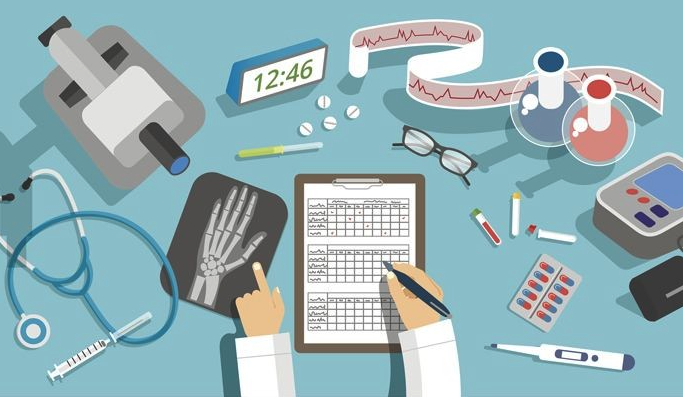The Role of Telemedicine in Transforming Healthcare Delivery
Table of Content
Telemedicine, which refers to providing medical services remotely through the utilization of telecommunications technology, has significantly altered the landscape of healthcare, particularly in the most recent years.
This article explores telemedicine's complex impact on patient care, provider workflows, and the future of medicine. It looks into the essential role that telemedicine plays in transforming healthcare delivery.
1. Access to Healthcare in Remote and Underserved Areas:
"For people who live in locations that are underserved and distant, where access to high-quality medical treatment is limited, telemedicine is a lifeline that can save their lives. Patients are now able to contact healthcare professionals regardless of the geographical obstacles that previously existed because of the utilization of telecommunication technologies" says, Shannon Coventry, Car Leasing Expert at First Vehicle Leasing. Additionally, this newly discovered accessibility means that people living in remote communities or regions that do not have access to medical facilities can obtain timely care and medical guidance, which eventually leads to improved health outcomes and a reduction in health disparities.

2. Improving Healthcare Access for Vulnerable Populations:
Sasha Quail, Business Development Manager of claims.co.uk says, "When it comes to gaining access to medical care, vulnerable populations, such as the elderly, those with disabilities, and people with restricted mobility, frequently confront considerable obstacles.
These obstacles are overcome by telemedicine, which provides solutions for remote monitoring and virtual consultations at the same time. The implementation of this strategy not only improves the accessibility of medical care for vulnerable individuals but also gives them the ability to better manage their health issues, which ultimately results in improved treatment adherence and comprehensive well-being."

3. Enhancing Chronic Disease Management and Preventive Care:

"Through its ability to facilitate remote monitoring and virtual consultations, telemedicine plays a crucial part in the management of chronic diseases and the provision of preventative care" shares, Gerrid Smith, Founder & CEO of Fortress Growth.
"Patients who suffer from chronic diseases, such as diabetes, hypertension, and heart disease, can now obtain routine checkups and modifications to their medications without the need for repeated visits to the doctor's office" he adds.
Additionally, telemedicine makes it possible to undertake preventative treatments and get health coaching, which gives patients the ability to adopt healthier lifestyles and avoid the repercussions of disease.
4. Facilitating Timely and Efficient Healthcare Delivery:
"Telemedicine, in addition to enhancing access to care, also improves the efficiency of healthcare delivery by reducing the amount of time patients have to wait for treatment and by streamlining the workflows of healthcare providers.
Through the use of virtual consultations, medical professionals can more efficiently triage patients, handle medical concerns that are not considered urgent, and maximize the utilization of available resources.
By doing so, not only is patient satisfaction increased, but also expenditures associated with healthcare are decreased, and the overall efficiency of the healthcare system is improved" shares, Timothy Allen, Director at Oberheiden P.C.
5. Supporting Mental Health and Behavioral Healthcare Services:
"Particularly amid the COVID-19 pandemic, telemedicine has emerged as an essential instrument for the delivery of mental health and behavioral healthcare treatments.
Psychiatric consultations, counseling sessions, and therapy sessions can all be conducted virtually, allowing patients to receive much-needed help for their mental health without having to leave the comfort and privacy of their own homes.
This strategy not only removes obstacles that prevent people from getting treatment, but it also lessens the stigma that is associated with mental health problems, which eventually leads to better treatment outcomes and an improved quality of life." says, Billy Webb, Managing Director at vapejuice
6. Enhancing Patient Engagement and Empowerment:

"Patient involvement and empowerment are both fostered by telemedicine since it gives individuals a higher degree of control over their path through the healthcare system.
Patients can gain access to their medical information, monitor their health metrics, and engage with their healthcare professionals in real time by utilizing telehealth platforms and mobile applications.
As a result of this greater connectedness and transparency, patients are given the ability to actively participate in the decisions regarding their care, which ultimately leads to improved treatment adherence and results for patients" adds, Tim Parker, Director at Syntax Integration

7. Adapting to Evolving Healthcare Needs:
Ben Flynn, Marketing Manager at 88Vape says, "Because of its versatility and flexibility, telemedicine is ideally suited to fulfilling the ever-evolving requirements of the healthcare industry, particularly in the event of public health emergencies and natural disasters.
Through the use of telemedicine, medical professionals can provide remote triage, screening, and follow-up care during times of crisis. This helps to reduce the likelihood of disease spread and relieves pressure on healthcare facilities that are already operating at capacity.
With this proactive strategy, continuity of treatment is ensured, and the resilience of healthcare delivery is enhanced in the face of obstacles that were not anticipated."
8. Shaping the Future of Healthcare Delivery:
"Because of the ongoing development of technology and the changing healthcare delivery methods, telemedicine is well-positioned to play a significant role in shaping the future of healthcare. Telemedicine has the potential to change healthcare delivery by making it more accessible, personalized, and efficient.
This promise can be seen in a variety of application areas, including remote patient monitoring and tele-intensive care unit services, diagnostics powered by artificial intelligence, and therapies augmented by virtual reality.
It is necessary to embrace telemedicine as an integral component of modern healthcare systems to unlock its full potential and create a healthcare system that is more egalitarian and patient-centered for everyone" shares, Cameron Holland, Marketing Director at GB Foam
Conclusion:
In the realm of healthcare delivery, telemedicine has emerged as a game-changer, opening up potential that has never been seen before to enhance accessibility, efficiency, and the overall quality of care.
Through the utilization of telecommunications technology, telemedicine can overcome geographical obstacles, empower patients, and improve the capacities of providers.
Stakeholders across the healthcare ecosystem need to work together to maximize the benefits of telemedicine and overcome any possible problems that may arise as it continues to develop and acquire wider adoption.
Through collaborative efforts, we can harness the revolutionary power of telemedicine to establish a healthcare system that is more accessible, efficient, and focused on the patient than it has ever been before.












